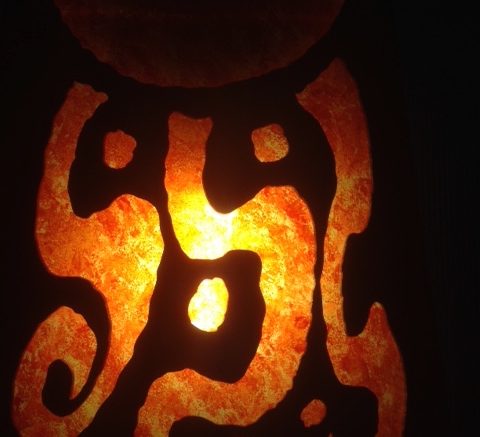The Greenland ice sheet covers an area the size of Alaska with enough ice to raise global sea level by more than 20 feet.
By Thomas Mote
The Hill (8/4/19)
During the past week, temperatures at the highest reaches of the Greenland ice sheet rose above freezing, melting snow at the Summit Station (10,550 feet above sea level) for the first time since July 2012 and perhaps only the third time in the last seven centuries.
Across lower elevations around the margins of the ice sheet, bare glacial ice melted at an unprecedented rate, losing 12.5 billion tons of water on Thursday alone, with daily losses likely exceeding any point in at least the past 70 years.
The Greenland ice sheet covers an area the size of Alaska with enough ice to raise global sea level by more than 20 feet. Greenland gains ice each winter from compacting snow accumulation and loses ice from melt water and icebergs discharged to the ocean. A dry, warm spring this year left a thin snow cover over bare glacial ice. Spring warming followed by a large melt event in June led scientist Jason Box of the Geological Survey of Greenland to predict record ice losses this year. The peak of the melt season passed in mid-July with more typical summer conditions, but the past week again saw a large increase in the area and intensity of melt across the Northern Hemisphere’s remaining ice sheet.
This latest heat wave was particularly unusual as a dome of warm air arrived from the east, associated with the remnants of the record-setting European heat wave last month. Most large melt events on Greenland involve warm, humid air masses arriving from North America and the western Atlantic Ocean. This surge of warm air started in North Africa, traveled north across Europe and then westward across the North Atlantic Ocean toward and across Greenland. Air masses originating over North Africa are known to reach Greenland — Saharan dust has been traced to the ice sheet — but this recent air mass was exceptionally warm. By following the path of the heat wave, scientists predicted the extensive melt several days in advance. Air temperatures at Summit hovered near or above freezing for more than 11 hours on Wednesday, which is nearly twice as long as the last melt event there in 2012. …
*****
Brazil’s Bolsonaro Mocks ‘Captain Chainsaw’ Label As Data Revealss Deforestation ‘exploded’
By Tom Phillips
The Guardian (8/7/19)
Deforestation in the Brazilian Amazon “exploded” in July it has emerged as Jair Bolsonaro scoffed at his portrayal as Brazil’s “Captain Chainsaw” and mocked Emmanuel Macron and Angela Merkel for challenging him over the devastation.
Speaking in São Paulo on Tuesday, Brazil’s president attacked the leaders of France and Germany – who have both voiced concern about the surge in destruction since Bolsonaro took office in January.
“They still haven’t realized Brazil’s under new management,” Bolsonaro declared to cheers of approval from his audience. “Now we’ve got a blooming president.”
The far-right populist repeated claims that his administration – which critics accuse of helping unleash a new wave of environmental destruction – was the victim of a mendacious international smear campaign based on “imprecise” satellite data showing a jump in deforestation.
Bolsonaro ridiculed what he called his depiction as “Capitão Motoserra” (“Captain Chainsaw”).
But as he spoke, official data laid bare the scale of the environmental crisis currently unfolding in the world’s biggest rainforest, of which about 60% is in Brazil.
According to a report in the Estado de São Paulo newspaper, Amazon destruction “exploded” in July with an estimated 2,254 sq km (870 sq miles) of forest cleared, according to preliminary data gathered by Brazil’s National Institute for Space Research, the government agency that monitors deforestation.
That is an area about half the size of Philadelphia and reportedly represents a 278% rise on the 596.6 sq km destroyed in July last year. …
- Amazon Deforestation Accelerating Towards Unrecoverable ‘tipping point’ — Deforestation of the Brazilian Amazon has surged above three football fields a minute, according to the latest government data, pushing the world’s biggest rainforest closer to a tipping point beyond which it cannot recover. The sharp rise – following year-on-year increases in May and June – confirms fears that president Jair Bolsonaro has given a green light to illegal land invasion, logging and burning. Clearance so far in July has hit 1,345 sq km, a third higher than the previous monthly record under the current monitoring system by the Deter B satellite system, which started in 2015. … Read the Rest


